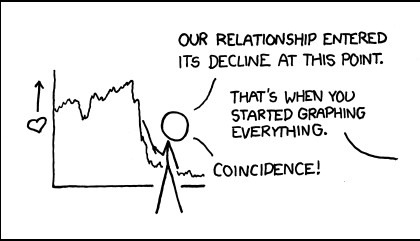
Why KPIs are Killing your Business
The dominant paradigm - or thoroughly assimilated worldview - of senior managers is that business is best driven and measured by key performance indicators. ‘Fine-tuning’ KPIs - like pistons in an engine - can ramp up growth, streamline costs, improve customer satisfaction or help turn the organisation into an employer of choice. One need only sufficiently reward (or punish) people for hitting their KPI ‘targets’ (or not) to make it happen. Yet treating the organisation as a dumb machine - and its people like children with gold stars for good performance - undermines effectiveness and is killing business today.
The over-reliance on quantitative methods in modern management - calls made per hour, minutes per customer interaction, customer satisfaction scores etc. - ignores the complex nature of the wider world the firm operates in and the real (qualitative) nature of its challenges. The following is a real example from a large retail bank:
A woman, pushing a baby in a pram, was about to leave the bank after completing her transaction when a customer service rep approached her. He politely asked (he was well-trained) whether she could spare a few minutes to answer some questions about her banking experience today. Like most people do when asked nicely the woman agreed. She answered the questions on his list and he ticked off all the boxes. When they had finished he asked her if she had any questions for him - she said no, so he thanked her and walked off. The woman called him back and asked, amazed, why he hadn’t opened the door for her, especially as she had just helped him with his customer feedback questions. “Let’s fill that questionnaire in again” she demanded.
The rep failed to do what would have come naturally to him had he not been at work - opening the door to let a mother with a pram out. Instead, he acted according to how his KPI dictated - being an efficient (polite) cog in the machine. As his humanity is not rewarded he learns to leave it at the door when he comes to work. Multiply this interaction by the millions your staff have with customers (and each other) every day and you get some sense of the limitations of running your business by KPIs alone.
By taking an exclusively internal view KPIs become poor drivers of effectiveness. They cut the business off from wider economic realities, ignore the changing nature of customers needs and rely on unscientific ideas as to what really motivates staff. At best they help senior management map out possible budget scenarios (‘if everyone does x then the result will be z’), but at worst they become explicit targets (ceasing to be measures of performance) that reward those adept at winning competitions, often at the expense of the collaboration, creativity, responsiveness and adaptability staff need to meet emerging business challenges.
Senior managers must be careful not to take the variability (and resilience) out of their business by uniform KPIs. Managing by rigid processes and conformance rewards merely turns resourceful humans into human resources. This adds direct costs to the business in management control, re-hiring and re-training (as staff leave) and represents a MASSIVE opportunity cost as recently outlined by Gallup, who suggested that most companies are maximising only 5% of their workforce.
Only when businesses start building operations around the way people really are, rather than the way they want them to be, can they exploit the real opportunities and resist the clear threats in today’s economies. The key take away is that human behaviour can’t be modelled mathematically, so quantitive approaches like KPIs ALWAYS blow up spectacularly, eventually. Recognising this represents a HUGE competitive opportunity for the organisations that adapt first.
Contact www.narrativeinsights.com today if you’d like a free presentation on how to organise your business for success in a more challenging world.
Supply Chain & Projects - Oil and Gas / Decarbonisation
9yAn interesting post here, Why Stanford Students Turn Down $150,000 Entry-Level Salaries. Very much explaines why traditional KPIs will be gone very soon.
Managing Director and Site Director at Esseco UK
9yMarcus, mis-using KPIs to track the roll out phase of a project where behavioural change is the focus can be a good case-study. High pressure from the top of modern Corporates tend to push even the most experienced and senior leads in this kind of a trap. Agree: stick to the orignal title!
Vorstand
9yStarting and end point are people... trust, relationship, motivation, drive und resilience. No indicator can create this foundation. Indicators can partly assist to understand what is going on, but its not wise ( or better to say stupid ) to assume people will run after you changed a goal for a parameter... at best a change in behaviour happens short-term. People form social-networks and are no machine.
Supply Chain & Projects - Oil and Gas / Decarbonisation
9yWith the modern fashion on startups and "do-what-you-love" success, you will see more and more people leaving the corporate world a lot faster. While people generally are afraid of starting up a business, but the growing disconnect between employees values and passions (and alike) and KPIs (sometimes totally meaningless), will speed up the process. This should be an alarm bell for corporate world, as established organization may end up losing the game. There must be a reason why 90% of Fortune 500 companies disappeared.
Organisational Developer & Strategist | Deploying Wardley Maps with Leaders Who Want to Win
9yCheers Evert!